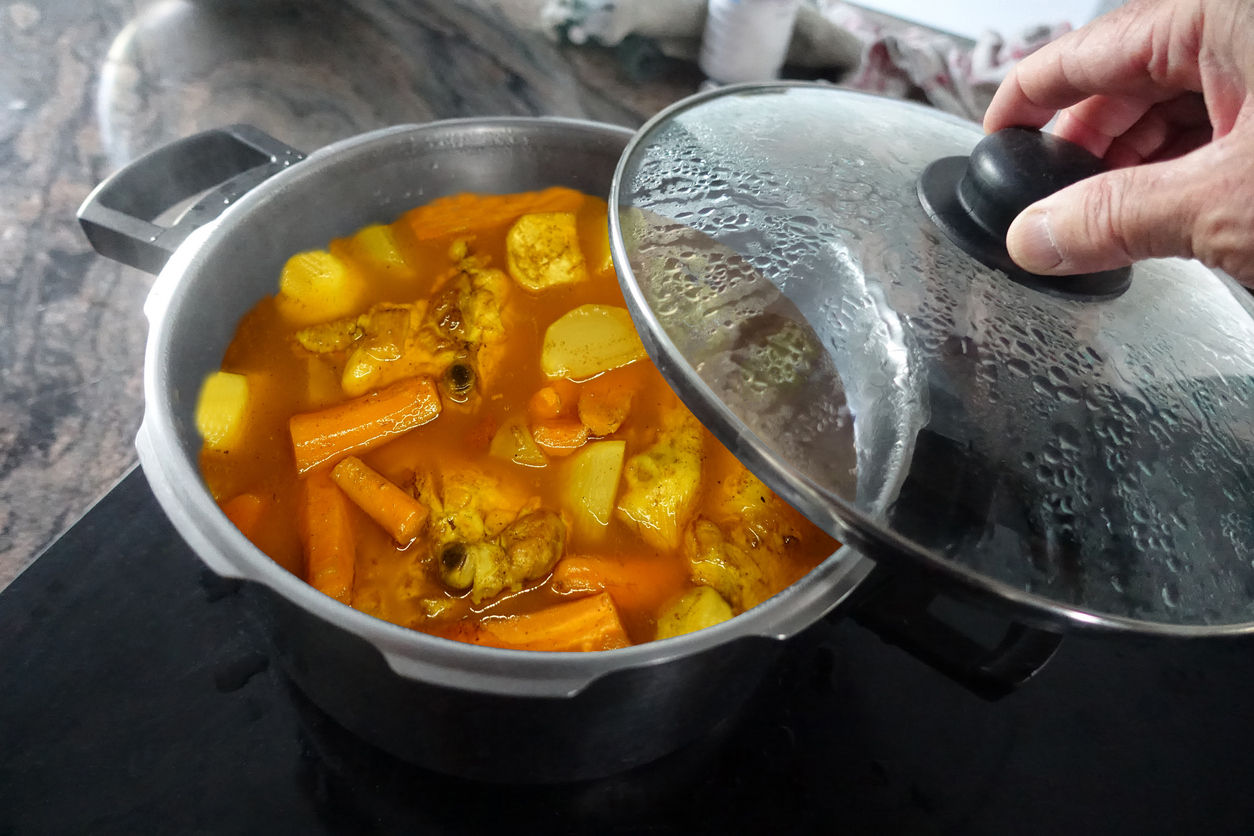If you’ve been diagnosed with PCOS, chances are your doctor must’ve prescribed making changes to your diet and exercise as part of the treatment plan — and for good reasons. Lifestyle modification is often the first line of treatment for both lean and overweight PCOS. For overweight patients, weight loss is the single most important determinant in alleviating symptoms. Current guidelines suggest that a weight loss of even 5%-10% can help improve reproductive and metabolic health.
What is PCOS?
PCOS or polycystic ovary syndrome is a chronic condition that affects your reproductive, metabolic and psychological health. PCOS is characterised by the underlying hormonal imbalance, especially insulin and androgen that are responsible for producing many symptoms of PCOS.
And PCOS is so much more than just missing your periods, it can cause many visible and subtle changes in the body which can put you at an risk of developing serious health complications in the future.
How does PCOS affect the body
PCOS can affect multiple systems of your body – including reproductive, metabolic and psychological health. Symptoms such as irregular periods can affect your ovulation cycle which can in turn make it difficult to conceive. Also, irregular periods over time increases the risk of developing endometrial cancer.
Many women with PCOS suffer from insulin resistance, which can cause weight gain, fatigue and cravings. Leaving insulin resistance untreated can increase your risk of developing type 2 diabetes. Excess androgen or male hormone levels can cause excess facial and body hair, scalp hair loss and acne. Symptoms like these can affect body image and also interfere in social relationships.
Lastly, the effects of PCOS on a woman’s mental health is understated. PCOS can lead to feelings of anxiety and depression which can affect your quality of life.
How does diet modification help with PCOS?
It is no secret that what you eat and how much you eat have a direct impact on your weight. But the role of nutrition does not end at weight loss. Following a healthy, nutritious diet is also crucial for improving your quality of life, treating symptoms of PCOS, and preventing the risk of developing other chronic conditions, such as diabetes and hypertension. There are certain foods that are good for PCOS and certain foods to avoid in PCOS – but first let’s see how your diet has an impact on your PCOS symptoms.
1. Hormonal imbalance
PCOS is primarily linked to hormonal imbalance — specifically elevated androgen (male hormone) and insulin levels. If hormonal imbalance goes unmanaged, it can increase the risk of developing other chronic conditions such as type 2 diabetes, high blood pressure and heart disease. In fact, research suggests that women with PCOS who followed Dietary Approaches to Stop Hypertension (DASH) diet saw beneficial effects like lower blood insulin levels, lower inflammation and less abdominal fat accumulation. The DASH diet is a low-glycemic index (GI) diet i.e. it includes foods that do not instantly spike your blood insulin and sugar levels but instead raise the blood sugar leveIs gradually. This diet is rich in whole grains, fruits, vegetables, low-fat dairy products, and low in saturated fats — all of which are favourable for people with PCOS.
2. Inflammation
Inflammation is your body’s immune response to protect itself from a foreign substance. But sometimes your body’s immune system reacts to its own cells causing a state of inflammation. C-reactive protein (CRP) is one such marker that is elevated during an inflammatory response in the body and is used to detect inflammation via blood test. CRP levels are known to be elevated in people with PCOS. Research shows that following an anti-inflammatory diet, can help reduce PCOS symptoms. Some anti-inflammatory PCOS foods to eat include:
1. nuts (almond and walnut),
2. Seeds (chia seeds, flaxseeds (alsi seeds)),
3. green leafy vegetables (spinach, mustard greens, fenugreek),
4. olive oil,
5. fruits (strawberries, orange, blueberries),
6. fatty fish (salmon, mackerel)
7. Turmeric
8. Ginger
There is no diet that has been proven to be superior over others for women with PCOS. Rather, your diet should be designed in a way that will suit your body’s needs and goals. Like any other healthy diet, PCOS diet focuses on whole foods, fresh fruits and vegetables, while limiting sugar, processed food and saturated fat intake.
Foods to eat with PCOS
Fruits
Although fruits are also considered to be carbohydrates due to their sugar content, most of them have low GI, which means they don’t instantly spike your blood glucose levels. However, are certain fruits to avoid in PCOS such as watermelon, pineapple, etc which have high GI. In addition, fruits are also rich in vitamins and minerals that help reduce oxidative stress, which damages cells inside your body, and fibre, which keeps you full for longer. This is why you should include a variety of fruits. These are the list of fruits good for PCOS such as berries, plums, grapes, peaches, apples, oranges, pear, and strawberries in your diet.
Vegetables
Low GI vegetables such as spinach, green peas, onions, lettuce, cabbage, green beans, tomatoes, and cucumbers can help improve insulin levels by raising blood sugar levels gradually. They are not only high in fiber, but are also rich in vitamins and minerals such as folate, magnesium and calcium.
Whole grains
Focus on including whole foods instead of processed foods in your diet. For example, replace your refined flour (maida) with whole wheat flour or bajra which have low glycemic index. Slow-releasing carbohydrates that you can include are quinoa, steel cut oats, brown rice, kuttu ka atta (buckwheat), ragi, jowar and bajra. Although a gluten-free diet is also popular among women with PCOS, it is not necessary to eliminate gluten but rather to limit the amount of refined carbohydrates.
Proteins
Proteins are not only important for muscle building and repair but also help keep you full for longer. You can choose to have a mix of proteins including plant and animal-based proteins. Plant-based sources include tofu, lentils (dal), chickpeas (chana) and other beans, hemp seeds, green peas, amaranth, soy milk, chia seeds, nuts, nut butters & seeds. For animal protein, you can include sources such as chicken and eggs.
Healthy fats
In any diet, fats have always received ‘bad press’. The truth is fats are equally as important as carbohydrates and proteins to maintain a balanced diet. Healthy fats provide energy, support and cushion internal organs, and are important in producing hormones and maintaining reproductive health. Some healthy sources of fats include nuts and seeds, avocado, olive oil and fish. You can grill meat or vegetables instead of frying them. Additionally you can use olive oil in homemade dressings, have nuts for snacks and include omega-3 rich fats as found in salmon, flaxseeds, chia seeds, walnuts and canola oil.
Foods to avoid
Refined carbohydrates
Refined carbohydrates are simple carbohydrates such as refined flour (maida) that you find in many fast food or packaged items. Simple carbohydrates spike your blood sugar levels which can worsen insulin resistance and cravings. For PCOS, it is recommended to have slow-releasing carbohydrates that don’t spike your blood glucose levels instantly. It is best to avoid refined carbohydrates such as pizza, pastries, and sodas and switch to healthier alternatives of these food items.
Packaged or processed foods
Packaged or processed foods are high in saturated fats, additives and refined. It is important to cut down sources of trans fat and saturated fat found in baked goods (cakes, cookies, donuts), fried food, sausages, and fast food. It is also best to avoid red meat such as mutton, beef, pork and processed meat such as sausages and bacon that are high in saturated fat.
Dairy
Some studies have found that milk and milk products may lead to insulin resistance which can result in weight gain and elevated male hormone levels in women with PCOS. However, you do not need to completely cut out dairy; small amounts of dairy such as Greek yoghurt or paneer are beneficial sources of protein. The trick is to listen to your body – if you feel dairy worsens your acne or your body is intolerant to it, it is best to replace it with non-dairy products such as almond or soy milk.
Sugar
Insulin increases your appetite, which might be one reason why women with PCOS crave carbohydrates. When you eat sugar, especially processed foods, it instantly spikes your insulin levels and too much insulin can result in weight gain and high male hormone levels. Sugar can also increase inflammation which is not desirable for PCOS. It is best to cut down on packaged snacks and baked goods and instead switch to healthier options of sugar such as a whole fruit or a small piece of 70% or greater dark chocolate. Although a small portion of dark chocolate is OK, it is important to keep it in moderation.
Other lifestyle changes
Although 80% of your PCOS treatment is about following the right diet, good nutrition is only one part of the equation. Research shows that incorporating regular physical activity such as 30 minutes of cardio along with strength training is helpful for weight loss, maintaining insulin levels and eventually reversing PCOS symptoms. Following a healthy diet along with regular physical activity that is sustainable can help you control the symptoms in the long run.
Along with this, managing stress and getting good quality sleep each night is also important in managing the hormonal imbalance.
When to see a doctor
If you experience any of the above symptoms such as irregular periods, acne or weight gain, it is best to visit a doctor to get a proper diagnosis. While these symptoms don’t necessarily mean you have PCOS, they could also be underlying symptoms of other conditions. Early detection and treatment can make a huge difference in managing your PCOS and maintaining your overall health.
Depending on your symptoms, your doctor will recommend you appropriate tests for diagnosis or refer you to a gynaecologist or an endocrinologist.
Prognosis of PCOS
PCOS can take upto 12-18 months to show an improvement in the symptoms. Weight is one of the first symptoms to show an improvement. Androgen or male hormone levels take the longest time to improve which means hirsutism and acne can take upto a year to show visible changes.
It is important to start PCOS treatment early on, to avoid the risk of developing future complications. The earlier you start the treatment, the better are the outcomes. Depending on your symptoms and concerns, your treatment plan needs to be personalised.
Summary
As you can see, PCOS diet is all about packing nutrition in each meal and avoiding foods that are either processed or refined. PCOS diet should not feel restrictive, neither should you feel the need to follow a fad diet to see results. You need to develop a healthy relationship with food and see diet as a way to nourish your body.
However, generic weight loss diet plans don’t work for PCOS. You need a personalised diet plan that will work for your symptoms, concerns and dietary triggers.
Disclaimer: Content on Veera is provided for informational purposes only and is not intended as medical advice, or as a substitute for medical advice given by a physician


















